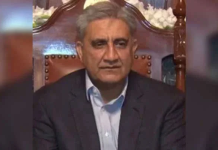ISLAMABAD, JUN 11: Federal Finance Minister Muhammad Aurangzeb confessed on Tuesday the government had exclusively relied on the standby agreement with the International Monetary Fund (IMF) asserting that there was no alternative plan.
The finance czar’s remarks came while presenting the Economic Survey for the financial year 2024-25 alongside the economic team.
During the presser, Aurangzeb emphasised that the agreement, made under the leadership of Prime Minister Shahbaz Sharif, was crucial due to the absence of a contingency plan.
Currency devaluation
At the end of the fiscal year 2022-23, Pakistan faced significant economic challenges. The GDP contracted by 2%, and the Pakistani rupee depreciated by 29%. Foreign exchange reserves dwindled to a level that could only cover two weeks of imports.
Aurangzeb noted that prior to taking office, he had advocated for entering the IMF programme, as there was no viable alternative.
IMF deal
The 9-month standby agreement with the IMF, signed by the prime minister and his team, was instrumental in averting a more severe economic crisis. “Without this agreement, we would not be discussing our goals today,” Aurangzeb stated, underscoring the agreement’s critical role in the country’s economic management.
Tax collection
Aurangzeb reported a 30% growth in tax collection, an unprecedented achievement. The current account deficit was projected at $6 billion for the fiscal year, with an anticipated reduction to $20 million in the new fiscal year.
The finance minister attributed the stability of the rupee in recent months to administrative measures, including tightening controls on Afghan transit trade.
Pakistan’s foreign exchange reserves now cover two months’ worth of imports, amounting to over $9 billion. Aurangzeb highlighted that the quality of these reserves is strong, providing a solid foundation for the next fiscal year. Inflation, which had peaked at 48%, has dropped to 11.8% as of May, significantly easing pressure on core inflation and food prices.
Monetary policy
A recent reduction in the policy rate was attributed to decreased inflation. Aurangzeb projected that the rate could fall to 10% by the beginning of the next fiscal year, leading to a gradual reduction in the policy rate.
Measures taken by the State Bank, such as restructuring and increasing the capital requirements for exchange companies, were instrumental in stabilizing the exchange rate.
Structural reforms
Aurangzeb emphasized the need for increased tax-to-GDP ratios and reforms in the tourism sector, while addressing governance issues. He stressed the importance of policy implementation, particularly in tax and energy sectors, and reducing leakages in the Federal Board of Revenue (FBR).
“Every sector must contribute to the economy; schools, universities, and hospitals can be run on charity, but the country can only run on taxes,” he remarked.
Energy sector challenges
Minister of State for Energy, Ali Pervez Malik, acknowledged the burden of capacity payments on electricity prices, which impacts industrial growth and exports. He indicated that ongoing reforms and growth would eventually alleviate this problem.
Despite past challenges, the growth rate for the current year stands at 2.38%, with the agricultural sector experiencing its highest growth in 19 years. Aurangzeb attributed the economic recovery to government initiatives and the IMF standby agreement, highlighting its necessity in achieving current economic goals.
The Federal Finance Minister concluded by reiterating that without the IMF programme, Pakistan would have faced severe difficulties. The government’s strategic decisions and reforms are now paving the way for a more stable and prosperous economic future.

















